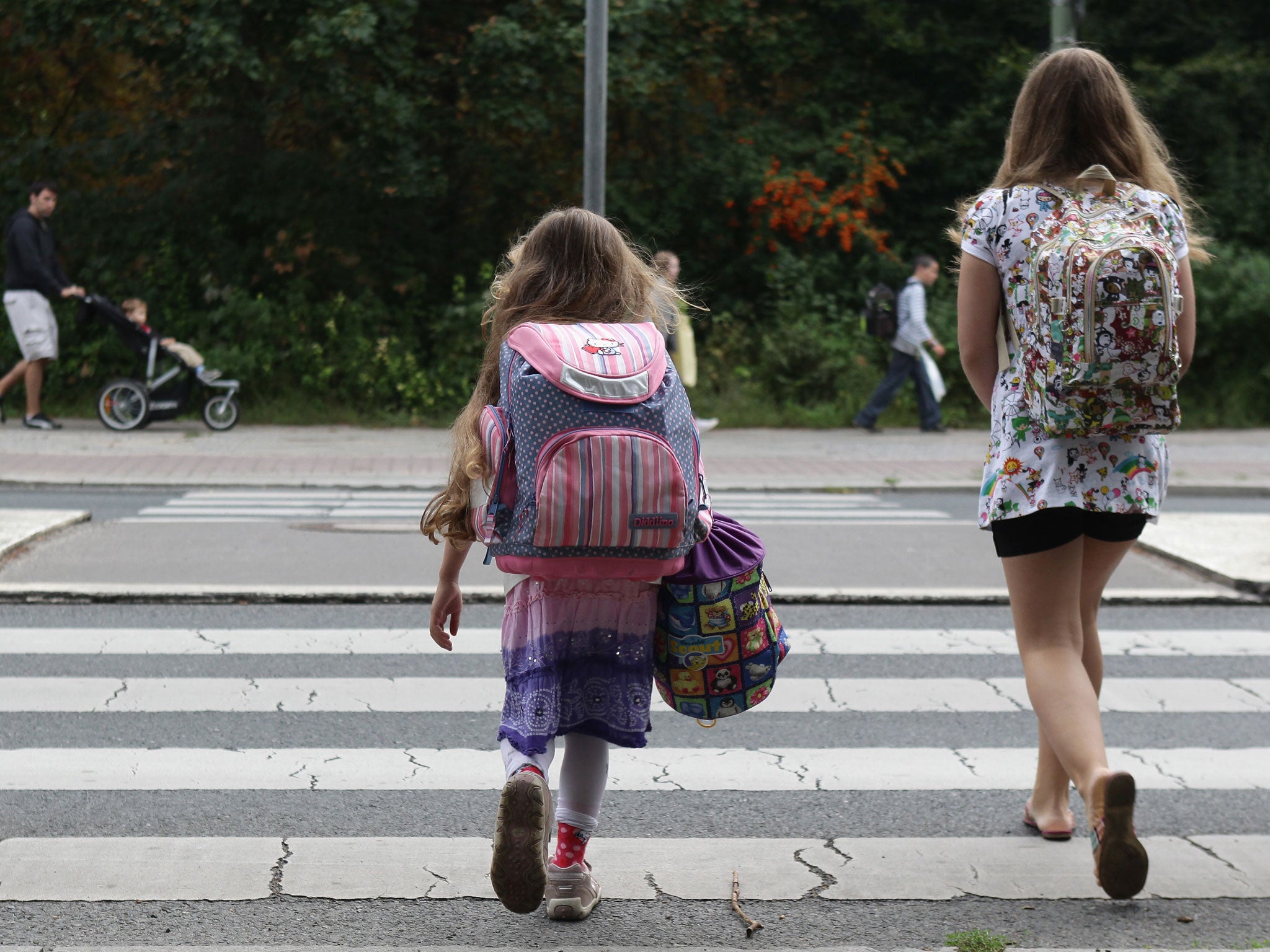Only 25 per cent of children walk to school alone compared to 86 per cent in 1971. What went wrong?
The benefits of children walking to school unaccompanied are so blindingly obvious, it's hard to understand why anyone does the school run anymore


Your support helps us to tell the story
From reproductive rights to climate change to Big Tech, The Independent is on the ground when the story is developing. Whether it's investigating the financials of Elon Musk's pro-Trump PAC or producing our latest documentary, 'The A Word', which shines a light on the American women fighting for reproductive rights, we know how important it is to parse out the facts from the messaging.
At such a critical moment in US history, we need reporters on the ground. Your donation allows us to keep sending journalists to speak to both sides of the story.
The Independent is trusted by Americans across the entire political spectrum. And unlike many other quality news outlets, we choose not to lock Americans out of our reporting and analysis with paywalls. We believe quality journalism should be available to everyone, paid for by those who can afford it.
Your support makes all the difference.A study from the University of Westminster has this week shown that only 25 per cent of primary school pupils now travel home alone as opposed to 86 per cent in 1971 and 76 per cent today in Germany.
Children who live less than a mile from their primary schools should, of course, walk to and from them. Up to the age of, say eight or nine they need accompanying, and thereafter they could do it in pairs or small groups without adults. This is so blindingly obvious to me that I have the greatest difficulty understanding why anyone thinks otherwise. Obviously there might be occasional extenuating circumstances such as very heavy rain, the child has broken a limb or has something exceptionally heavy to take to school when getting the car out might be reasonable. But that shouldn’t be the norm.
There are five good child-centred reasons for giving children what Cath Prisk, Director of Play England, calls ‘the gift of independence.’ And they are all equally important.
First, British children are getting fatter and less healthy at a frightening rate as study after study has shown. Walking to and from school is good exercise.
Second, walking is a good opportunity for children to spend time chatting with with each other, as opposed to listening to adults. Children need to talk, ask questions and work things out. It’s a crucial part of learning and development and too many children get too little chance to do it.
Third, you can observe things such as plants, buildings, vehicles, notices and much more and talk about them when on foot in a way you can’t in a car or on public transport because walking is slower.
Fourth, it’s good for children to let off steam by exercising in fresh air on the way to and from school because they have to spend large stretches of the school day in an indoor confined space.
Fifth, children must learn to take care of themselves which includes assessing risk and dealing with it. Parents who never let their children out of their sight deny them an important opportunity to acquire key life skills.
There are also powerful reasons which relate to matters other than the child for leaving the car at home and skipping the school run. Exercise benefits parents too. Few things clap a car out faster than continually using it for short fuel-guzzling journeys. Fewer cars on the road means less congestion and pollution.
Some people drop their children at school as part of their own getting to work routine. I think that even these would do their children a better service by making them walk. Parents might even then be able to take a more direct and convenient route to work.
And yet, in the Kent town where I live, literally hundreds of parents drive their children to the schools at the top of our road. There’s a mile-long queue outside our house for half an hour every morning and afternoon. Some, it is true, live on the other side of town but many – I know for a fact – are driving their children less than half a mile. And I’m sure that this pattern is replicated all over the country. I certainly see it wherever I go.
So why do they do it? Many parents profess worry about their children being molested in the street. Now of course, it is an appalling tragedy on the rare occasions when this happens but it is so unusual that it’s headline news. According to NSPCC statistics, 56 children were killed ‘at the hand of another person’ in 2010, the most recent year for which figures are available. Of these two thirds were killed by their own parents, mostly – sadly - as babies.
Although even one such death is obviously too many, that leaves just a handful of children murdered by crazed or evil strangers. It really doesn’t happen often enough to be something which dictates and spoils the childhood experience of the nation’s 5 million or so primary school children.
As for road safety, yes, roads are very busy and children have to be systematically coached from a very early age in how to negotiate them. Surely if a parent walks his or her child to school until he or she is, say, eight there will have been ample time to do this?
As it is, I’m not convinced these are the real reasons in many cases. I think parents themselves are too often disinclined to walk anywhere and therefore don’t expect their children to do it and there’s no role modelling. Thus the hop-in-the-car attitude becomes culturally embedded and far too many children go on getting fatter, less curious and less self reliant.
It needs some really brave parents to break the mould, and in doing so, ignore the fear that they will be adjudged neglectful by other parents if they send their children to school independently. Do we need a campaign?
Join our commenting forum
Join thought-provoking conversations, follow other Independent readers and see their replies
Comments